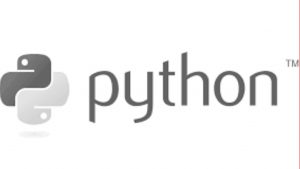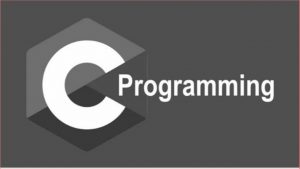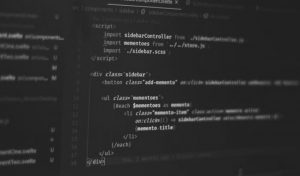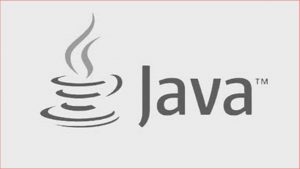Programming Languages To Learn For Cyber Security: Cyber security is more popular now than it has ever been. With the extremely critical data breach and massive cyber and IT talent demand predictions for the next decade, cyber security is now more important than it has ever been. Many of us would have never heard the phrase, let alone understood what it meant, ten years ago.
With several headlines concerning cyber security, it’s no surprise that there’s a surge of interest in joining the profession. So, which programming languages are best for cyber security? Let’s have a look.

There are around 250 popular computer programming languages today, with as many as 700 in use worldwide. That number drops to roughly 10-15 in cyberspace. The finest programming languages to learn for cyber security are listed below.
Recommended: Best Programming Languages To for a Job 2024
Top 11 Best Cyber Security Programming Languages To Learn
1. Python: Python has dominated the field of cyber security for numerous years. Because it’s a server-side scripting language, the final script doesn’t need to be compiled by programmers. It’s a general-purpose programming language that’s used in many, if not all, cyber security scenarios.

Python allows you to automate processes and do malware analysis. Furthermore, a large third-party library of scripts is easily available, implying that assistance is just a click away. Some of the features that make it prominent are code readability, straightforward syntax, and a large variety of libraries.
Python is a crucial programming language for cyber security specialists since it can be used to identify malware, do penetration testing, scan for dangers, and analyse them.
2. Go: For cybersecurity experts, Go has gained a lot of traction. Because of its use in the domain controller and cloud services, versatility and ease of use, and data analysis capabilities, it’s an excellent choice for cyber programmers. Go has the following features:
Most malware is designed to enter computer networks undetected, which makes Golang ideal for this.
Golang allows for the creation of a specific source code for all major operating platforms.
The malware written in Golang is rather huge. This allows them to breach systems unnoticed as huge files cannot be inspected by a majority of popular antivirus applications. This language also comes with a large number of libraries that make developing the malware simple.
Also see: Top 10 Hardest programming to learn
3. JavaScript: JavaScript is perhaps the most widely used programming language, with 80% of all websites using it. It’s among the most powerful programming languages for cyber security.

JavaScript allows programmers to use any command while users are on a website, enhancing the functionality of that site. However, it might provide dangerous functionality that the visitor is unaware of. Malicious codes may be used to start a program if the website is hacked.
If you know JavaScript, you can make any website secure enough to prevent or even eliminate Cross-Site Scripting (XSS) attacks. Front-end developers, full-stack developers, back-end developers, and others utilize JavaScript. It is both the most adaptable and the most widely utilized language on the planet.
4. C: Because it is a limited programming language with basic syntax, it can be learned in a few months. When developing software, programmers go above and above to ensure that it is bug-free. Hackers, on the other hand, can utilize it to uncover flaws. It has the following characteristics:
Because cyber security experts can dismantle malware to investigate its design, propagation, and repercussions using C language in reverse engineering, it makes it easier to create antivirus solutions.
C is also necessary for developers with QA software integrity. Before launching an attack, cyber adversaries may use the language to identify exploitable weaknesses in the network.
Lint is a C-based code analysis tool. Since its initial conception, various versions have emerged. Lint may be used by both cyber security specialists and hackers to uncover code faults and defects that compromise network security.

Recommended: Easiest programming language to learn as a beginner
5. C++: C++ is based on the C programming language, but it has a few differences.
C++, unlike C, supports objects and classes.
C++ is a faster and more efficient programming language than C.
Despite its utility, it is used by less than 0.1% of all internet sites.
A C++ developer creates desktop and mobile apps, whereas coding experts find and fix problems and vulnerabilities.
Cyber security specialists benefit from studying C++ since it allows them to quickly identify vulnerabilities and security flaws. Cyber professionals may quickly identify security issues in code using a scanning tool like Flawfinder, which searches C++. Using an integrated platform that covers the language function’s probable hazards, these tools characterize current vulnerabilities, their severity, and their consequences on an application.
6. SQL: The SQL (Structured Query Language) computer language is a domain-specific language. It’s a common tool for parsing data in huge databases. SQL is the most used database management programming language as organizations become more data-driven.

Most websites, such as Relational Database Administration System, employ SQL for data management (RDBS). It works with a variety of database systems. As a result, it is often regarded as the most user-friendly language for database management.
SQL queries are written by database administrators, programmers, and end-users to retrieve, insert, modify, and delete data from database tables. This language is frequently used by attackers to steal private information, breach data repositories, and carry out a range of web-based attacks.
Also see: Best websites to learn programming from beginner level to advance
7. PowerShell: PowerShell is a very flexible command-line interface that combines the advantages of the traditional Command Prompt (CMD) with a powerful scripting ecosystem that may be used to get insight into a machine’s inner core, including access to Windows APIs.
PowerShell is a useful tool for managers to automate tedious processes, but its capabilities have unfortunately been abused by malevolent actors. Hackers may now use PowerShell to obtain sensitive domain information and load malicious executables instead of relying on traditional malware. Many attackers favour PowerShell since it is available by default on all PCs from Windows 7 to Windows Operating system 2019.
8. PHP: PHP is a computer language that is used to create web pages on the server-side. PHP is by far the most powerful server-side language, powering 80% of the top 10 million domains on the internet. For this reason alone, it’s self-evident that knowing PHP will aid in your defence against hackers.

RIPS is a common tool for automated security analysis in PHP applications. RIPS investigates data flow from input parameters to important operations in an application. If you’re a PHP developer dealing with security flaws, RIPS might be useful.
You can write server-side web application logic as a PHP security developer. PHP can be used to manage back-end resources and data sharing between servers and their customers. You may also utilize your PHP skills to find and fix any flaws in your code.
Also see: Most Famous Scientists in the World and their Discoveries
9. Java: Many important operating systems, such as Solaris, Linux, macOS, and Microsoft Windows, were designed using Java as one of the earliest languages. It is widely used in various sectors since it powers both new and ancient web servers.

The Java programming language has several applications in the field of information security.
For example, cyber adversaries utilize it to reverse-engineer proprietary software programs to find and exploit security flaws. Penetration testers frequently use Java to arrange the high-scaling servers that they utilize to deliver payloads.
Java programming is used by experienced ethical hackers to construct and develop complex, ethical applications. Ethical hackers can use Java to construct vulnerability testing applications that can run on a variety of systems.
Recommended: How to make money gaming in 2024
10. Assembly: Any low-level language that aids in the analysis and comprehension of malware’s operation is known as an assembly language. If you already know a high-level programming language, learning assembly isn’t too difficult.

In 2003, Slammer, a trojan built on assembly, forced service neglect on a large number of owners, causing chaos and slowing online traffic. The malware took advantage of a protection overflow flaw on Microsoft’s SQL server. A fix was published months prior to this incident, thus it wasn’t a sudden occurrence. However, many businesses chose not to use the patch, which allowed the bug to spread.
Assembler is a crucial programming language because cybersecurity professionals may use it to decipher malware and comprehend its attack vectors. It’s crucial for cybersecurity experts to comprehend how malware works since they constantly protect against both conventional and modern malware.
11. Ruby: Ruby is a high-level, general-purpose language that was invented and developed in Japan by Yukihiro Matsumoto. Since then, it has developed into one of the most widely used programming languages worldwide.
The syntax of Perl and Python is quite similar to that of Ruby. It was composed in C. Coders choose it because of how simple it is to use and how well it naturally handles large-scale coding projects. Websites like Airbnb, Hulu, Kickstarter, and Github have all used Ruby extensively. Ruby controls a large portion of a machine’s intricate information, making applications simpler to create and requiring less code.
Also see: Best science courses to study in the university
Conclusion
Knowing a few programming languages not only looks nice on a CV, but also it keeps you competitive in the industry.
Even while coding may not be required in many entry-level cyber security occupations, it is essential in mid-level and high-level positions. Learning a minimum of one programming language can assist you to get a head start on your profession and set you up for long-term prosperity in the field of cyber security.

Edeh Samuel Chukwuemeka, ACMC, is a lawyer and a certified mediator/conciliator in Nigeria. He is also a developer with knowledge in various programming languages. Samuel is determined to leverage his skills in technology, SEO, and legal practice to revolutionize the legal profession worldwide by creating web and mobile applications that simplify legal research. Sam is also passionate about educating and providing valuable information to people.